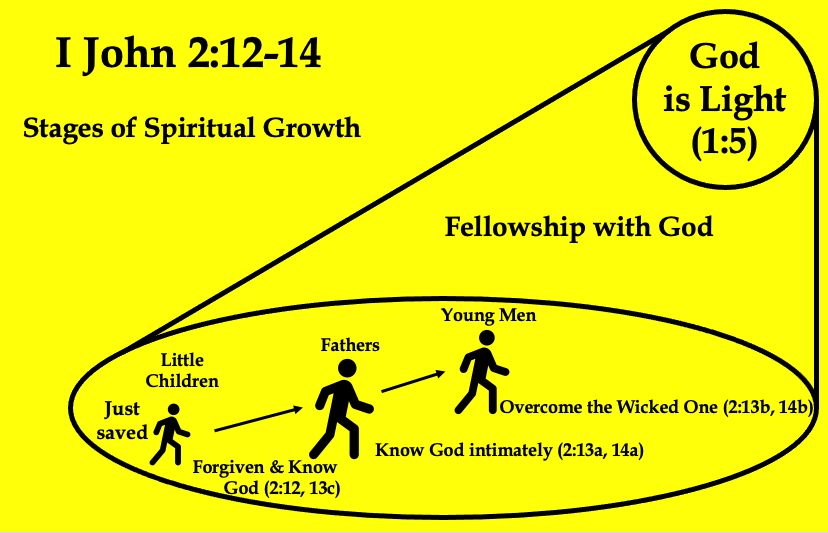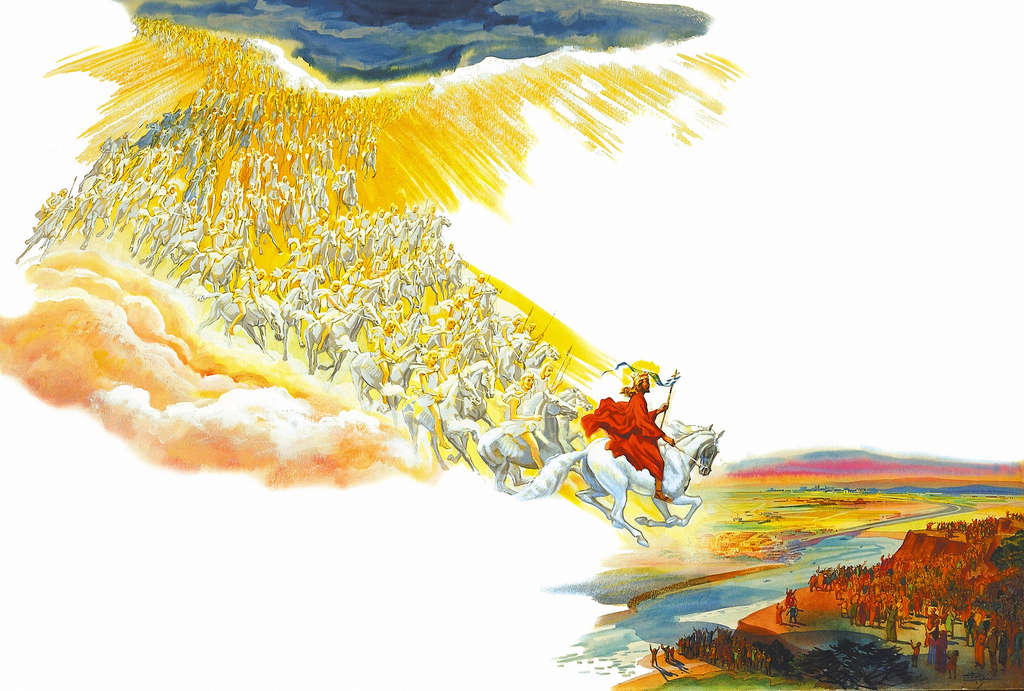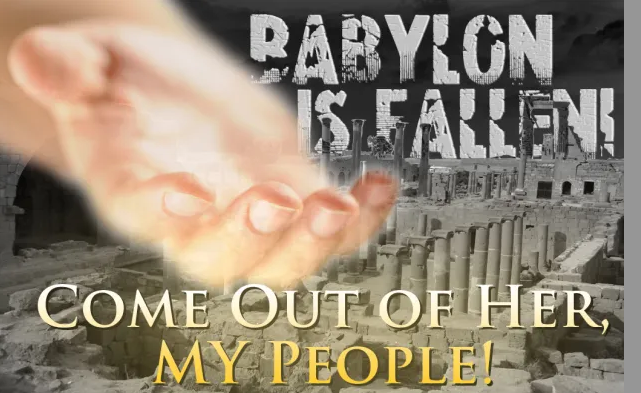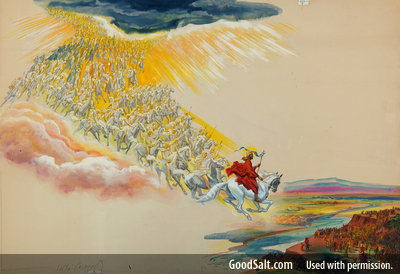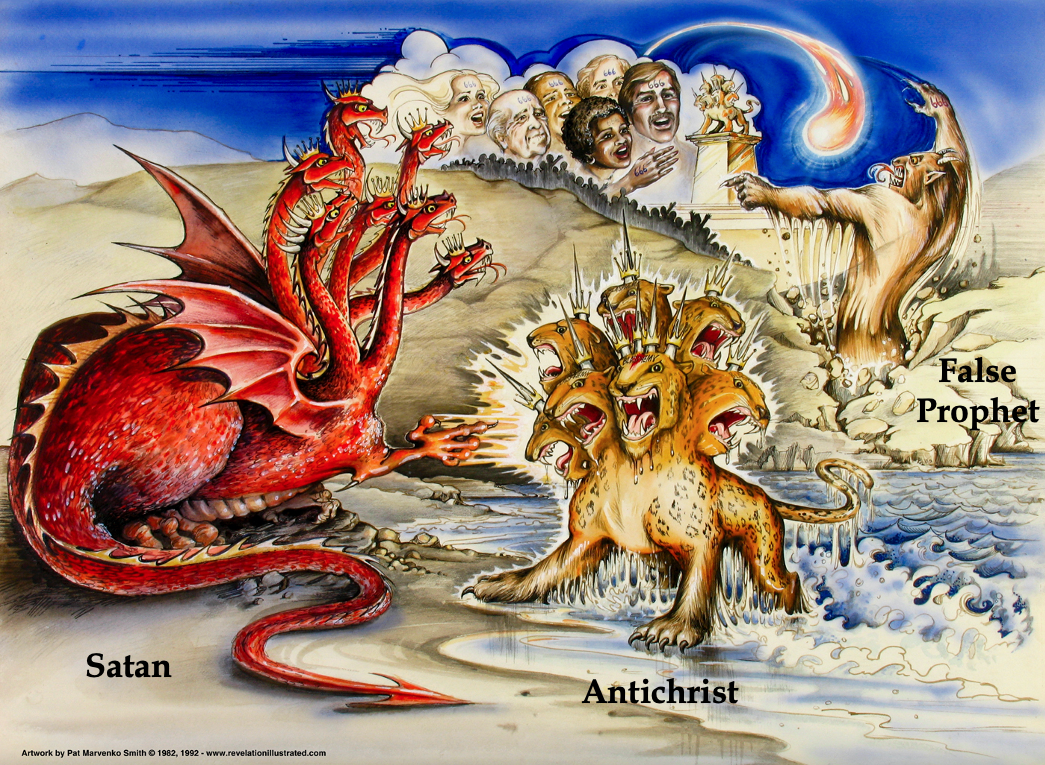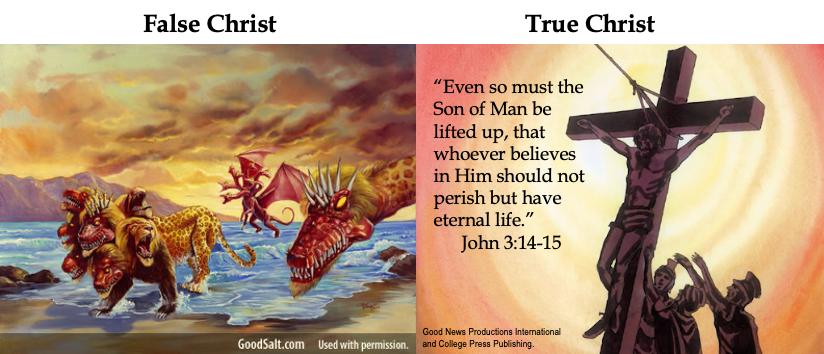“Beloved, do not believe every spirit, but test the spirits, whether they are of God; because many false prophets have gone out into the world.” I John 4:1
In I John 2:18-27, the apostle John talked about overcoming one of our enemies, the Devil, and his false teachers called antichrists. These false teachers can be very deceptive. Believers need God’s help to overcome them. In the Upper Room, Jesus promised His followers a Helper, the Holy Spirit, Who would guide them into all truth (John 14:26-27; 16:13-14).
In I John 2:28-3:23, John begins to instruct his readers how they may have more confidence and less shame at the coming of Jesus Christ (2:28). John has shown us that the one born of God is manifested only through righteousness (2:29-3:10a), and this righteousness takes the form of a Christlike love for other Christians that leads to boldness in prayer (3:10b-23). Now John will show that this kind of life is the manifestation of the indwelling God (3:24-4:16). 1
“Now he who keeps His commandments abides in Him, and He in him. And by this we know that He abides in us, by the Spirit whom He has given us.” (I John 3:24). Once again, we see one of John’s favorite words for fellowship – “abides” (menō). John first used this word in I John 2:6 and continues to use it as a picture of fellowship. In I John 2:3 we learned that keeping God’s commandments was necessary to know God intimately. 2
“This word [menō, abides] is used almost as much in John 14–15 (fourteen times) as all the rest of John, and it is used twenty-four times in 1 John. If we remember that John 14–15 was intimate truth for the ears of believers only (Judas was sent out), just the parallel use of abide in 1 John should tell us that the latter is truth for believers as well, that is, truth about their fellowship with God, not their relationship with God. It’s about edification, not evangelism.” 3
In I John 3:24, John states that the believer “who keeps His commandments abides in Him, and” God ”abides in” the obedient believer. Abiding in Christ is equivalent to keeping His commandments. When Christians walk in obedience to God, God “makes His home” within the believer. 4 Obedience results in mutual abiding: God in the believer and the believer in God. 5
In the Upper Room Jesus said to His believing disciples, “If anyone loves Me, he will keep My word; and My Father will love him, and We will come to him and make Our home with him.” (John 14:23). Not only would the Holy Spirit take up residence in Christ’s disciples (John 14:16-17), but so would God the Father and God the Son. The reality of the Father and Son indwelling a believer was conditioned upon obedience.
This is a picture of fellowship or closeness with the Godhead – “and We will come to him and make Our home with him.” The word “home” (monē) is the same word Jesus used of the “many mansions” in the Father’s house in heaven (John 14:2). The link between verse 2 and verse 23 is that the current dwelling of God the Father, God the Son, and God the Holy Spirit in an obedient believer’s life is a foretaste of God’s dwelling with us and in us in His eternal kingdom on the new earth (Rev. 21:1-3). 6 Notice that the indwelling of the Holy Spirit was not based upon obedience, but upon belief in Christ (cf. John 7:37-39).
“Salvation means we are going to heaven, but submission means that heaven comes to us!” 7
John first mentions God’s “Spirit” in I John when he writes, “And by this we know that He abides in us, by the Spirit whom He has given us” (3:24b). He did refer to God’s Spirit indirectly when he spoke of the “anointing from the Holy One” (2:20; cf. 2:27). But this is the first use of the word “Spirit” in his epistle. We can “know” (ginōskomen) experientially that God “abides in us, by the Spirit whom He has given us” the moment we believed in Jesus Christ (cf. John 7:37-39; Acts 10:43-48; 15:7-8; 19:5; Gal. 3:2, 26-27; Ephes. 1:13-14; et al.).
In the Upper Room discourse, Jesus said the Holy Spirit was the Spirit of truth Who would indwell believers (John 14:16-17). He would also testify on behalf of Christ’s Person and work (John 15:26) and glorify Christ, not Himself or His spiritual gifts (John 16:13-14).
“The way a believer can verify that God lives (menei, ‘abides’) in him is by the operation of God’s Spirit in his life. John then showed that God’s Spirit is the Spirit of both faith (I John 4:1-6) and love (I John 4:7-16) – the two aspects of the two-part ‘command’ given in 3:23.” 8
How does the indwelling Holy Spirit manifest Himself to us? To begin with, He enables us to distinguish the Spirit of truth from the spirit of error: “Beloved, do not believe every spirit, but test the spirits, whether they are of God; because many false prophets have gone out into the world.” (I John 4:1). John tenderly addresses his readers as “Beloved” (agapētoi) children. In love the apostle warns his readers to stop believing 9 “every spirit” because God’s Spirit is not the only spirit manifested in the world.
The word “spirits” (pneumata) “can refer to a human spirit, to supernatural spirits like demons, or to an attitude or disposition. John is not trying to be specific; he is warning against every malevolent spirit of Satan, every human spirit who becomes his agent, as well as every manifestation of ‘the spirit of error’ (cf. v 6) that characterizes satanic doctrine.” 10
Apparently, John’s readers were believing false teaching, so he commands them to stop doing that (4:1a). Some people naively think that any manifestation of a spiritual presence must be an indication of the Holy Spirit.
“There are those who will deceive you, offering an unbiblical spiritual experience. They may even come in the name of Jesus. So, if you watch Christian television, listen to Christian radio, or read Christian books, be discerning. ‘Satan disguises himself as an angel of light’” (2 Cor. 11:14).” 11
John explains how to distinguish God’s Spirit from the many spirits that are at work in the world (4:2-3). 12 When John says to “test the spirits” (4:1a), the word “test” (dokimázō) means “to make a critical examination of something to determine genuineness, put to the test, examine.” 13 Instead of believing every teaching they hear, John’s readers were to examine the message to see if it is sourced in God and His Word (“whether they are of God”). The reason for this is “because many false prophets have gone out into the world” (cf. 2:18-27). Since John wrote these words there has never been a shortage of teachers who oppose the fundamentals of the Christian faith, most notably the Person and work of Jesus Christ.
Jesus taught that “false prophets” were to be tested “by their fruits” (Matt. 7:15-20). Outwardly these false prophets may look like genuine believers. Jesus said they will “come to you in sheep’s clothing” (7:15a). Outwardly they will look like sheep – they will confess the Lordship of Jesus Christ by referring to Him as “Lord, Lord” (7:22a) They will do wonderful works for Christ’s glory, saying, “have we not prophesied in Your name, cast out demons in Your name, and done many wonders in Your name?” (7:22b). The way to discern if they are false prophets is by their “fruits” (7:16-20). Since the Lord has just told us that these false prophets look like sheep (7:15a), we can conclude that their “fruits” have nothing to do with outside appearances. Christ says, “inwardly they are ravenous wolves” (7:15b).
Jesus helps us understand in Matthew 12:33-37 that their “fruits” refer to their words. Christ said their words reveal the condition of their hearts: “Brood of vipers! How can you, being evil, speak good things? For out of the abundance of the heart the mouth speaks… But I say to you that for every idle word men may speak, they will give account of it in the day of judgment. For by your words you will be justified, and by your words you will be condemned.” (12:34, 36-37). So, the way to discern a false prophet is by listening to his words, not by looking at his works.
John tells us that the test question to discern if a person’s teaching was driven by God’s Spirit or the spirit of falsehood was this: What do they believe about the Person and work of Jesus Christ? 14 He writes, “2 By this you know the Spirit of God. Every spirit that confesses that Jesus Christ has come in the flesh is of God, 3 and every spirit that does not confess that Jesus Christ has come in the flesh is not of God. And this is the spirit of the Antichrist, which you have heard was coming, and is now already in the world.” (I John 4:2-3). When John writes, “By this you know the Spirit of God,” these words refer backward to verse one and mean,“This is how (i.e., by testing the spirits) you know the Spirit of God.” Instead of a colon, a period should follow the statement, with the words “Every spirit” beginning a fresh sentence. 15
With this understanding, 4:2b-3 give the test to determine if a person’s teaching was driven by God’s Spirit or the spirit of falsehood. Only those who are willing to “test the spirits” (4:1a) will be able to discern God’s “Spirit” (4:2-3). If they “believe every spirit” (4:1a), they will not recognize which of them is driven by “the Spirit of God (4:2-3). 16
The test that can be applied to “every spirit” is the willingness or unwillingness to “confess that Jesus Christ has come in the flesh.” The word “confess” (homologeō) is a compound Greek word – “same” (homo) + to speak (logeō) or “to speak the same,” “to agree, confess, acknowledge… in public.” 17 The term “Jesus Christ” refers to the God-Man, the unique eternal Son of God (John 1:1, 14, 18; I John 5:20).
John’s readers were facing “antichrists” or false teachers (2:18-26) whose exact character “has been much discussed. Many have thought they were Gnostics who held to a strict dualism in which spiritual and material things were sharply distinguished. Others have seen the letter as directed against Docetism, the belief that Jesus’ humanity was not real and that He only appeared to have a physical body. Often too, the letter is thought to refute the heresy of Cerinthus. According to church tradition, Cerinthus lived in Roman Asia and was strongly opposed by the Apostle John. Cerinthus taught that Jesus was only a man and that the divine Christ descended on Jesus at His baptism and left Him before the Crucifixion.” 18
We can tell from John’s epistle the type of false teaching his readers were facing. They were being told Jesus was not “the Christ” (2:22), the promised Messiah-God Who guarantees a future resurrection and never-ending life to all who believe in Him (cf. John 11:25-27). The person who denies this truth about Jesus “is a liar” (2:22) who undermines the very basis on which anyone is saved. Hence, these false teachers were denying that John’s readers had eternal life (2:25-26).
John wanted his readers to understand that Jesus could really be “heard… seen,” and touched (1:1-2). He was concerned that people “confess that Jesus Christ has come in the flesh” (4:2-3) which makes sense if the teaching of the Docetists was in view that denies the humanity of Jesus Christ and taught that He only appeared to have a physical body. Christ’s “body was not just an appearance. It was real flesh and blood, and it did not make Him sinful.” 19
The apostle’s emphasis on knowing God (2:3-5, 13-14; 3:1, 6; 4:6-8; 5:20) fits the view that the false teachers made special claims to “knowledge” as the Gnostics did. The statements about Jesus coming “by water and blood” (5:6) are understandable against the backdrop of teaching like that of Cerinthus. 20 Such falsehoods about the Person and work of Jesus Christ are not from “the Spirit of God” but from “false prophets” and “the spirit of the Antichrist” in them (4:1-3).
John does not say “every spirit that denies,” but “every spirit that does not confess…” (4:4). False “teaching can mask the full extent of its deviation from the truth by simply failing to affirm some pivotal Biblical truth.” 21
“Rather than proclaiming that Jesus is not the Christ, they fail to affirm that He is the Christ.” 22
According to the apostle John, Jesus Christ is the unique, eternal Son of God (I John 4:9-10, 14-15; 5:9-10, 12-13, 20; cf. John 1:18, 34, 49; et al.) Who is fully human (I John 1:1-2; 4:2-3; cf. John 1:14; et al.) and fully God (I John 2:22; 5:20; cf. John 1:1; et al.) Who died and rose from the dead (I John 3:16; 4:9-10; cf. John 1:29; 3:14-15; 19:17-20:30) so whoever believes in Him may receive His gift of eternal life (I John 5:1, 13; cf. John 3:15-16; 4:10-14; 20:31; et al.).
Jesus Christ “is the God-Man. He limited Himself because He has a human body, but He is limitless because He’s God. His mother gave birth to Him because He’s man, but He created her because He’s God. He went to sleep because He’s a man, but He commanded the wind and waves to go to sleep because He’s God. The truth about the uniqueness of Jesus must be your spiritual foundation.” 23


There are many variations today (see above charts) of the false teachings John’s readers were exposed to in the first century. It may seem overwhelming to us to overcome them. John offers us encouragement when he writes, “You are of God, little children, and have overcome them, because He who is in you is greater than he who is in the world.” (I John 4:4). John assured his readers they had “overcome” the false teachers and their deceptions at the time of his writing by means of the Holy Spirit (“He who is in you”). And you can do the same.
You do not need to be intimidated when false teachers attack your Christian faith because “He who is in you” (the Holy Spirit) “is greater than he who is in the world” (Satan). God the Holy Spirit is much “greater” in power and strength than the Devil who is the “ruler of this world” (cf. John 12:31; 14:30; 2 Cor. 4:4; Ephes. 2:2; I John 5:19). The key to victory over false teachers is reliance on the Holy Spirit inside us. He will guide us into “all truth” (John 16:13-14), exposing the lies of the antichrists by contrast. And He will also give us the words to say to those who oppose Christ (cf. Matt. 10:19-20).
“The tremendous pressure in the ocean’s depths can crush a human diver. But if you descend inside a pressurized diving bell, it exerts pressure outward to protect you from destruction. When Christians go into the world, they will experience extreme pressure—especially as they go deeper. We can’t prevent it. But have no fear. The pressure inside of you is greater than the pressure on you.” 24
“They are of the world. Therefore, they speak as of the world, and the world hears them.” (I John 4:5). In contrast to John’s readers who are “of God” (4:4a), the false prophets “are of the world.” The world “hears them” because their message is worldly in content. “It is always true that satanically inspired thought has a special appeal to worldly minds.” 25
Even today many false teachers receive a good hearing from the world. Biblical truth, on the other hand, has a far less appeal to worldly people. For example, the truth that “whoever believes that Jesus is the Christ is born of God” (I John 5:1) seems too easy to be true among those with a worldly perspective. Is it any wonder why works-oriented churches have a greater appeal for many non-Christians, not to mention believers who can also be deceived (cf. Gal. 5:4)!?!
“We are of God. He who knows God hears us; he who is not of God does not hear us. By this we know the spirit of truth and the spirit of error.” (I John 4:6). In I John 4:4-6, the pronouns “You … They … We” refer to three different groups. “You” refers to the “the little children” or the readers (4:4). “They” refers to the antichrists or false prophets (4:5). And “We” refers to the apostles. In the greatest sense the apostles were “of God” because their doctrine came directly from Him. John notes that believers who are in fellowship with God (“knows God”) listen to the apostles (“hears us”). But the person “who is not of God” in the sense that he or she is out of touch with God does not listen to apostolic instruction (“does not hear us”). This could be a saved or unsaved person. 26
Anderson observes, “The point is that the apostle identifies with his readers. It’s not a we versus you contrast. The we and the you combine into one group against the them. It wouldn’t even be necessary to mention these obvious facts if there weren’t so many preachers and commentaries of the reformed persuasion out there who will tell us that John is writing to a mixed audience of believers and unbelievers so they can figure out who are the sheep and who are the goats. That kind of introspection was a Puritan preoccupation. John Owen wrote a 650-page book just to help his readers look within to figure out if they were elect or not.” 27
“The NT teaches preoccupation with Christ, not with yourself. As long as I focus on myself, there will always be doubts. When I focus on Jesus, the doubts disappear.
“Those who are not of God will listen to the false prophets who spread false doctrine about the person and work of Jesus. Those who are of God will listen to the voice of the Holy Spirit as He speaks the truth about the person and work of Jesus. Correct doctrine about Christ is one way to distinguish between the Spirit of Truth and the spirit of error. So this is how we can recognize the Holy Spirit within us.” 28
The words, “By this we know” (4:6b) can refer to the apostles, who are the subject of the earlier statements of this verse. The apostles were able to make appropriate discernments between the spirit of truth and the spirit of error based on each spirit’s submission or lack of it to apostolic truth. 29
The way to distinguish “the spirit of truth and the spirit of error” (4:6b) is to see if the teaching conforms to apostolic teaching. The apostles witnessed Jesus’ resurrection (Acts 1:21-22; I Cor. 9:1) and they wrote the New Testament under the guidance of the Holy Spirit (2 Pet. 1:20-21). If someone teaches something contrary to the objective truth of the New Testament, he or she is a false prophet and has the spirit of the Antichrist inside them. 30
Prayer: Heavenly Father, thank You for Your indwelling Holy Spirit Who guides us into all truth and enables us to distinguish the Spirit of truth from the spirit of error. Thank You for this warning not to believe every spirit or teaching, but to test them all against the objective truth of the New Testament. False prophets and teachings that depreciate the Person and work of Jesus Christ are increasing rapidly as world events move toward the Tribulation period. Your Spirit of truth will never teach anything contrary to Your Word. Anyone who does not confess (not just deny) Jesus Christ has come in the flesh is not from Your Spirit of truth, but from the spirit of the Antichrist who is in them. Help us abide in Christ so we may not be deceived by false prophets and teachings. Please guard the hearts of vulnerable believers who have opened their minds to any teaching that is against the Person and work of Jesus Christ so they may recognize the truth and return to Your eternal Son Who is the true God and eternal life. In the matchless name of Jesus Christ, we pray. Amen.
ENDNOTES:
1. Zane C. Hodges, The Bible Knowledge Commentary Epistles and Prophecy, Editors John F. Walvoord and Roy B. Zuck (David C. Cook, 2018 Kindle Edition), Kindle Location 3930.
2. David R. Anderson, Maximum Joy: I John – Relationship or Fellowship? (Grace Theology Press, 2013 Kindle Edition), pg. 187.
3. Ibid.
4. Zane C. Hodges; Robert Wilkin; J. Bond; Gary Derickson; Brad Doskocil; Dwight Hunt; Shawn Leach; The Grace New Testament Commentary: Revised Edition (Grace Evangelical Society, Kindle Edition, 2019), pg. 598.
5. Tom Constable, Dr. Constable’s Notes on 1 John, 2022 Edition, pg. 89.
6. Robert Wilkin; J. Bond; Gary Derickson; Brad Doskocil; Dwight Hunt; Shawn Leach; The Grace New Testament Commentary: Revised Edition (Grace Evangelical Society, Kindle Edition, 2019), pg. 219.
7. Tom Constable, Dr. Constable’s Notes on John, 2017 Edition, pp. 274-275 cites Warren W. Wiersbe, The Bible Exposition Commentary, Vol 1 (Wheaton: Scripture Press, Victor Books, 1989), pg. 353.
8. Hodges, The Bible Knowledge Commentary Epistles and Prophecy, Kindle Location 3936.
9. The present imperative “believe” (pisteuete) with mē means to “stop believing.” See Archibald Thomas Robertson, A. T. Robertson’s Word Pictures in the New Testament [with Bible and Strong’s Numbers Added!], 6 Volumes (E4 Group, 2014 Kindle Edition), Kindle Location 206612.
10. Hodges, The Grace New Testament Commentary, pg. 598.
11. Tony Evans, CSB Bibles by Holman, The Tony Evans Bible Commentary (B & H Publishing Group, Kindle Edition, 2019), pg. 2946.
12. Constable, Dr. Constable’s Notes on 1 John, pg. 90.
13. Walter Bauer, A Greek-English Lexicon of the New Testament and Other Early Christian Literature: Third Edition (BDAG) revised and edited by Frederick William Danker (Chicago: University of Chicago Press, 2000 Kindle Edition), pg. 255.
14. Constable, Dr. Constable’s Notes on 1 John, pp. 90-91.
15. Hodges, The Grace New Testament Commentary, pg. 598.
16. Ibid., pg. 599.
17. Bauer, A Greek-English Lexicon of the New Testament, pg. 708.
18. Hodges, The Bible Knowledge Commentary Epistles and Prophecy, Kindle Location 3377 to 3382.
19. Anderson, Maximum Joy, pg. 190.
20. Hodges, The Bible Knowledge Commentary Epistles and Prophecy, Kindle Location 3382 to 3386.
21. Hodges, The Grace New Testament Commentary, pg. 599.
22. Constable, Dr. Constable’s Notes on 1 John, pg. 92.
23. Evans, The Tony Evans Bible Commentary, pg. 2946.
24. Ibid., pg. 2947.
25. Hodges, The Bible Knowledge Commentary Epistles and Prophecy, Kindle Location 3949.
26. Hodges, The Grace New Testament Commentary, pg. 599.
27. Anderson, Maximum Joy, pg. 191 cites John Owen, The Works of John Owen, 16 Vols., Vol. 3: A Discourse concerning the Holy Spirit (1677; reprint, Edinburgh: Banner of Truth Trust, 1965), pp. 45-47, 226-228).
28. Ibid.
29. Hodges, The Grace New Testament Commentary, pg. 599.
30. Evans, The Tony Evans Bible Commentary, pg. 2947.


